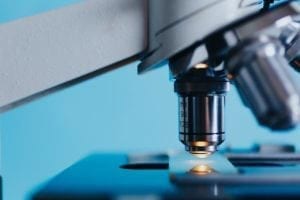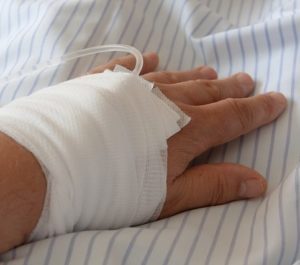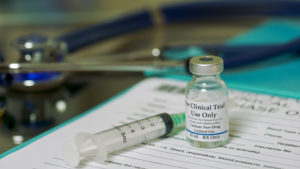Follicular Lymphoma
What is follicular lymphoma?
Follicular lymphoma is a form of non-Hodgkin’s lymphoma, which is a cancer of the lymphatic system.
The lymphatic system is a part of the immune system and a complex series of thin vessels, like blood vessels, that run throughout the body. Lymph vessels carry a clear liquid called lymph that contains a type of white blood cell (lymphocyte). The lymphatic system also contains lymph nodes, the spleen, thymus, and tonsils. Follicular lymphoma usually occurs in many lymph nodes throughout the body, as well as in bone marrow.
Follicular lymphoma is a slow-growing (indolent) cancer, although in rare cases it may grow quickly. About one in five lymphomas in the U.S. is a follicular lymphoma. On average, it is most likely to occur in people at around age 60. It is very rare in young people.
What are the symptoms of follicular lymphoma?
Since this cancer is slow-growing, patients will often not show obvious symptoms at the time of diagnosis. Symptoms include:
- Swollen lymph nodes in the neck, abdomen, underarms, and/or groin
- Fatigue
- Shortness of breath
- Weight loss
- Night sweats
- Fever
Some patients may eventually develop a transformed lymphoma, which is more aggressive than a follicular lymphoma.
What causes follicular lymphoma?
Follicular lymphoma arises from a type of cell called B-lymphocytes (B cells), which make them a B-cell lymphoma. B cells fight infection by creating antibodies that neutralize invaders. When those B cells develop a mutation in their DNA, the mutation tells the cells to grow abnormally, divide too rapidly, and live too long. This causes many abnormal B cells to accumulate in the lymphatic system, where they crowd out heathy cells. This compromises the body’s ability to fight infection and is what causes the symptoms of the disease.
How is follicular lymphoma diagnosed?
Follicular lymphoma is diagnosed using the following procedures:
- Lymph node biopsy to check for lymphoma cells
- Scans to see how many lymph nodes have been affected
- Complete blood count
- Thorough recording of patient history
What are the treatments for follicular lymphoma?
While follicular lymphomas respond well to treatment, they can be difficult to cure. They may not need to be treated right away; doctors may choose to wait and observe until the lymphomas start to cause problems.
Treatment includes:
- Radiotherapy
- Chemotherapy
- Targeted therapy with rituximab
After treatment, many patients go into a long-lasting remission; however, this disease is considered to be lifelong, which means that they can relapse. Still, the same treatment choices above can be applied in the case of a relapse.
Where can I find out more about follicular lymphoma?
Follicular Lymphoma Articles

Bayer Withdraws Aliqopa NDA for Follicular Lymphoma After Trial Fails

Woman Hopes that Joining Clinical Trial for Follicular Lymphoma Will Save Her Life




Tisagenlecleucel Receives Approval for R/R Follicular Lymphoma

Experimental Follicular Lymphoma Drug Receives Orphan Drug Designation




